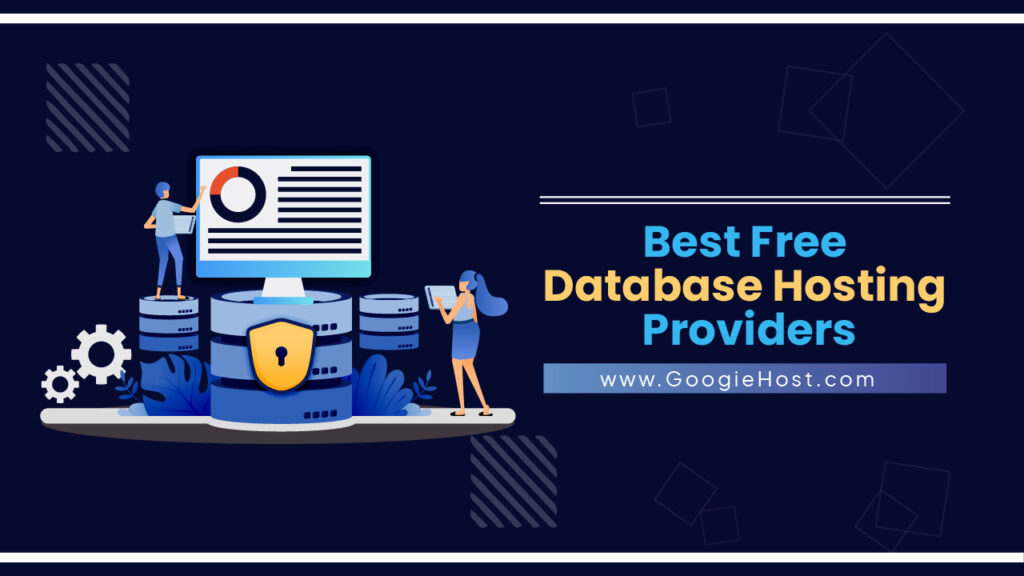Key Features to Search For When Selecting a Database copyright
Choosing a database provider is a vital choice that can considerably impact your organization's operations and data monitoring method. Amongst the crucial features to consider are scalability alternatives, which guarantee that your system can adjust to expanding demands.
Scalability Options
When picking a database supplier, recognizing scalability alternatives is essential to making sure that the picked remedy can suit future development. Scalability refers to the ability of a data source system to increase its capacity and efficiency in response to enhanced need. There are 2 primary kinds of scalability: horizontal and vertical.
Vertical scalability, or "scaling up," entails enhancing a single server's sources, such as CPU, RAM, or storage space. This strategy can be simple and economical for smaller sized applications however may get to a limitation where further upgrades are also costly or impractical.
Straight scalability, or "scaling out," involves including a lot more servers to distribute the tons. This technique enables for greater adaptability and can fit significant increases in data volume and user traffic (database provider). It is specifically helpful for cloud-based database solutions that can dynamically designate resources based upon demand

Safety And Security Steps

When examining safety and security actions, consider the application of security procedures (database provider). Data-at-rest and data-in-transit security are necessary to make certain that sensitive information stays protected, even in the occasion of a protection breach. Additionally, look for service providers that supply solid verification devices, such as multi-factor authentication (MFA), to further boost access control
Normal safety audits and compliance with industry criteria, such as GDPR or HIPAA, are a sign of a provider's dedication to information defense. Additionally, ask about their case feedback plan; a durable plan can lessen the influence of any potential protection incident.
Efficiency Metrics
Reviewing performance metrics is vital for companies to make sure that their chosen database copyright satisfies operational requirements. Trick performance metrics include reaction time, throughput, and scalability, which jointly identify the efficiency of database operations under differing lots.
Reaction time is crucial, as it mirrors just how rapidly the database can process queries and return results. Organizations needs to try to find metrics that indicate typical action times throughout top and off-peak hours. Throughput, frequently measured in deals per second (TPS), offers insight into the data source's capability to handle high quantities of demands without efficiency degradation.
Scalability evaluates the data source's capacity to expand with the organization's demands. A robust data source company must demonstrate vertical and horizontal scaling capabilities, permitting smooth modifications as needs fluctuate. In addition, understanding latency, particularly in distributed systems, can assist companies review the responsiveness of the database throughout various geographical areas.
Client Assistance
Reliable customer assistance is a cornerstone of efficient database management, offering companies with the help needed to deal with concerns and enhance performance. When picking a database copyright, examining the degree of customer support they provide is important. A durable support system should include several networks of interaction, such as phone, email, and live chat, making sure that individuals can access help whenever they require it.
In addition, receptive assistance teams that are offered 24/7 considerably boost the reliability of the database solution. Motivate response times and reliable resolution of issues can substantially lower downtime and increase overall productivity. It is also useful to think about the availability of committed support personnel, who can use customized aid based upon an organization's details demands.

Pricing Structure
When taking into consideration a data source copyright, the rates framework is a critical aspect that can dramatically impact an organization's budget and total approach. A versatile and transparent rates design is essential for straightening the database costs with company needs - database provider. Organizations needs to assess whether the pricing is based on consumption, per customer, or a flat rate, as each version can produce different economic implications gradually
It go to this site is necessary to analyze any type of extra expenses related to the supplier's services, such as data storage space fees, transaction prices, and assistance costs. Some suppliers might provide tiered prices, enabling scalability as the company expands, while others could impose rigorous limits that can become expensive as information demands boost.
Additionally, organizations should take into consideration the long-term value of the data source remedy. While reduced preliminary prices can be enticing, they might not account for future upgrades, upkeep costs, or combination expenses. Performing a comprehensive cost-benefit analysis will help determine one of the most ideal prices framework that stabilizes scalability, assistance, and performance, ultimately making certain that the selected data source supplier aligns with the organization's economic and operational purposes.
Final Thought
Finally, selecting a data source provider demands careful consideration of various critical functions. Scalability choices make certain flexibility to future development, while durable safety steps secure sensitive details. Evaluating efficiency metrics enables the recognition of efficient databases, and accessible client assistance boosts the overall user experience. A transparent prices framework additionally adds to informed decision-making. By extensively analyzing these variables, organizations can make calculated choices that line up with their functional demands and long-term purposes.
Selecting a data source copyright is a critical decision that can substantially affect your company's operations and information monitoring strategy.When choosing a data source service provider, comprehending scalability choices is crucial to making sure that the selected remedy can accommodate future growth. When choosing a data source company, evaluating the level of customer assistance they use is essential.When thinking about a data source copyright, the try here pricing structure is a crucial factor that can significantly impact a company's budget and general strategy. Conducting an extensive cost-benefit evaluation will help identify the more helpful hints most ideal pricing structure that stabilizes efficiency, support, and scalability, eventually making sure that the picked data source company aligns with the company's financial and operational purposes.